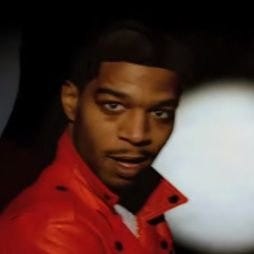3 Hits From Hell: Vol. 1
Some random things that managed to inspire me far past my brain's malaises.
Elijah Wald’s Narcocorrido (Book; 2001)
As one of the many poor decisions resulting from mental illness, in the last year or two I’d fallen into a few of the many scum-sucking true crime/paranormal/weird Youtube channel pits. This is a reprehensible decision on my part, and I blame it on the fact that I’m now approaching 3 years of not knowing what sort of mental health regimen I should be on, and which of the (now 6!) medications I take are doing me any sort of help. One particular thing I appreciate are the channels who seem to specialize in any content that comes from Latin America, because for whatever reason the tone is just far less aggressively moralistic and dogmatic. Spend enough time with the big channels and you’ll eventually hear these 20 something year old dipshit cracker boys who spend 1/3rd of their day on Reddit try to opine about sexuality, mental health, and politics as if they have some sort of insight far beyond “Oh shit! This… isn’t normal!”
Resultingly, much more unpolished, low-rent… downright slapdash efforts by channels like Took2Much and Stupid Beyond Belief grant me the reprieve of smarm by simply staring dead-eyed into the sludge. And specifically, they get away from the same 40 or so rehashed stories about mass murderers and trendy apps that undo the space-time continuum for a much less discussed part of the world in that community. The latter’s series on various Narcocorridos singers is one of the few who have actually given me an education, albeit in the most backwards and sensationalist way. I’d read an article about these artists in an issue of SPIN at some point in the 2000s but my memory fails me as does the laziest of attempts at searching online. Let’s presume I’m lying, due to the fact that I barely remember any of it; Norteno’s rootsy quality was never going to win over me in my teens either way. But watching this channel’s series lead me to want to actually learn more about the genre and lucky me that this book should be so easy to find and peruse.
Thankfully, that book thrives where it breaks away from simply reciting these many mysterious homicides with lurid awe and instead gives that reverence to the music and the style. Elijah Wald comes off like such an earnest nerd that could only come from a white American. His tales of hitch-hiking across Mexico, roaming around with an acoustic guitar and minor provisions like he’s some sort of ethnomusicological Brando in The Fugitive Kind. Justly, he’s often subsequently getting disappointed when those generous Samaritans are less enthused with corridos and would rather listen to punk rock or Queen’s Greatest Hits. There’s just a lovely sense of presumption that might not allow for a fairly objective approach, but instead benefits from a very personal touch. When Wald mentions casually that the CIA committed what amounts to more or less GENOCIDE of the population of one region during the glory days of Operation Condor there’s no reference, no citations, no quotes from an interview. This motherfucker just drops it as an aside as if the reader is bound to accept this information casually.
“Narcocorrido” is somehow both an autobiographical road novel from an earnestly committed music obsessive and a dedicated exploration of the lyric in Mexican music. Wald slips and slides into other genres such as folk and what have you only to keep his hunt going in determination. His passion appears to be isolating the voices of the many composers; their tone, humor, details. Even the many politics of the various songwriters, who more often than not actually reveal a deep interest in the political theater rather than simply being chroniclers of the who’s who in Cartel Warfare. I mean, there’s even a ballad about the life & times of Anwar Sadat that gives him the same mystique as any rebel robber baron. Certainly, he grants an amount of time for dedicated leftist folk balladeers and Mexican academics as well as your classic music industry hustlers and movers. You quickly understand though that this man is more dedicated to providing his perspective in a thoughtless, almost absent-minded way. The agenda here is as close to sloppy music enthusiast nerding as one can get, but with a passion for describing what it is that enraptures this author.
The rap comparisons get used a bunch but I can relate to that as someone who loathes the pruning of rap lyrics for timelines and implications about violence and instead just wants to be able to hear these people transmit their personalities through their music. Due to me being too Puerto Rican and too stupid to learn Spanish, I’ll probably never be able to register and absorb what a Chalino Sanchez does the way I can more readily do so for say, a YFN Lucci. But Wald’s done a great job for those of us who study music and want to use it less for the history of narrative and more for the history of genealogy. We can say what is or isn’t good in quality, but it’s better to just make sure we can grant something the space to be recognized for what people have made music become. It’s something I’ve often flailed about at others deigning unimportant, and yet I think it’s perhaps better I just praise someone for doing something that recognizes it’s importance.
Good Kill (Film; dir. Andrew Niccol, 2014)
I’m not exactly sure how Andrew Niccol ended up becoming one of the filmmakers I find so much intrigue at investigating; Lord Of War still holds up many years later as a grotesquely wry look at the nature of the arms industry and capitalism. Gattaca I actually ended up enjoying due to its perverse mockery of racism and ableism while also having Jude Law act like a total queen. He’s a man who makes films that feel more like essays for someone gunning for a shot in WIRED Magazine than stories, but there’s something to be said for a guy who more or less wants to use the same tenements of science fiction but does so while keeping everything very tensely tethered to the present. Basically, he’s William Gibson without the cyberpunk neon to distract the nerds from getting to The Heart of The Matter. Which also makes me wonder how I’m going to enjoy In Time, a movie that the poster makes my roommate groan due to Amanda Seyfried resembling ‘melon cat’ since it might very well fly in the face of my proclamation.
Good Kill returns Niccol to the horrors of war, only this time with Ethan Hawke as a forcibly grounded Air Force pilot who now works out of a Nevada base guiding drones in missions against Middle Eastern nations. Taliban, suspected al-Qaeda agents, insurgents, etc. The whole gamut of the many faced “Threat To America!” from roughly 2000-2015. Obviously since then we’re back to the classic American standby of Cold War paranoia, a much more reliable crutch for imperialism that relies less on racial/religious hysterics and more on good ol’ fury at any world nations who might openly jeer at the American assumption of dignity. So as a result, watching this film is kind of hilarious when you try to remember just How Many films about Afghanistan and Iraq had been released in that period weighing in on that subject, from every possible political stance. This film is in many ways a last gasp from a dying breed and feels almost quaint in how we’ve probably forgotten most of that as a culture. Just an incredible wet slap in the face with a goldfish as we briefly go “Oh yeah, that happened.” about a generationally defining horror.
None of this is a mark of quality by the way, let me assure you. In fact, anything I talk about in this issue/column/at any given moment should never be taken as an assurance of anything being “Good”. Frankly, 60% of this film at MINIMUM is boiler-plate ‘indie film’-core drama with Hawke (genuinely a favorite actor of mine in the past decade) doing his best to portray The Good Soldier with January Jones as his gorgeous wife who Just Doesn’t Get ‘It’. Hawke and Josh Brolin are, in my demented mind, neck and neck for excelling at playing just absolutely castrated modern white men. Even when their material is rather embarrassing and trite (such as Brolin’s chef’s kiss on the cock performance as killer cop Dan White in Gus Van Sant’s tedious Milk), they manage to thrive at conveying guys who look pathetic for how desperately they cling to masculinity. But the material the cast gets here when it isn’t trudging through standard domestic tragedy is just some of the most naked Subtext as Exposition I’ve seen in a minute. Frankly, I spent a great deal of my viewing not laughing in respect of the writing for this film, but blown away by the battering of smug dark observation. Just watch Bruce Greenwood’s character tell the troops “Don’t ask if it’s ‘a’ just war. It’s Just War.” with absolute dedication and tell me you’re not blown away at the balls on Niccol to be so naked. I mean fuck, Sorkin can’t even write like this without self-reflexivity.
But the drone scenes are, I assure you, some of the most batshit visual presentations I’ve seen in a long time. In a way, Good Kill is kind of a weird companion to the far more visually stimulating efforts by Brian De Palma from the last couple decades (it’s certainly worse than Redacted and while it might be a slightly ‘better’ film than the patchy Domino it’s far less prone to making you startled with visual tension). This is because in all these scenes of imminent death and destruction, the audience is treated to the use of the drone’s cameras as an eye of judgement right before the smiting begins. Peter Coyote’s phantomic CIA man “Langley” issues orders to the troops over a phone with cool assurance to his brutality, creating an even more isolating portrayal of this sort of grotesque surveillance. Even when they’re actually not killing people, you get to watch by far one of the most harrowing sexual assault scenes in a war movie I’ve yet to see with a reluctant acknowledgement of “he’s a bad guy. Just not the right bad guy.” By the end of this movie, can you really say it gets a proper point across? No. A point might be rather ill-fitting though, don’t you think? It’s not like any of the subject matter has a satisfying resolution in sight. Just a whole lot of horror and bullshit we use to reconcile with it.
Kajagoogoo’s “The Pump Rooms of Bath” (Song; B-Side of “Turn Your Back On Me” 12 Inch, 1984)
I love failures. I love sellouts. I love the sense of disorientation from when expectations are thwarted for better or worse, or when someone just doesn’t quite hit the mark. This isn’t to deny the obvious reward of engaging with something like that one Strokes album, Jordan Peele’s cinematic output or the wrestling of Bryan Danielson. Obviously there’s a place for that and you can learn a lot and be at one with your peers. Everyone needs to have something for conversation at parties and to remind them of the obvious. But when something is obtuse or blemished, that’s got a lot of appeal; sometimes you strike gold, sometimes it’s a misery. You still get to provoke questions on possibility, stretching your imagination wide. And that’s a lot more fun in my eyes.
Now, Kajagoogoo are obviously the most one-hit wondery of one-hit wonders out of the post-New Romantic side of New Pop. Like even A Flock of Seagulls had “Space Age Love Song”, which is honestly endearing in how nakedly it takes U2’s grandiose pomp and just makes it chintzy and sugary; like the most panoramic Valentine’s Day candy heart possible. But Kajagoogoo basically don’t have any positive regard beyond their famous hit in “Too Shy” (which to be fair, have you heard the bassline from that intro recently? That shit is HARD.) and maybe they don’t actually deserve it. Or maybe they do! Sure, they were second generation naked chancers, the proteges of the ever so slick and commercial Duran Duran. I’m not even sure why I’ve taken the time to drift around in their catalog the way a year or two ago I made the same effort unwisely for Wang Chung. Maybe I just like getting lost, I don’t know. But nevertheless, this year I decided that I was going to give this band a go and within a month of that baffling decision I got rewarded in this song which I at first mistook for a track from the Arthur Russell album I’ve finally gotten around to trying out. And right off the bat I think it says something that I think it’s entirely plausible to mistake a Kajagoogoo B-Side for work by the far more revered big brain behind records as disparate as “Is It All Over My Face” and “See Through Love”, right?
But listen to this thing! The cello coming in with the reverb and all the various messing around with delay on the fretless bass, the Caribbean-styled percussion... You could absolutely get away with saying that this record was an unreleased jam between later-era Japan after listening to World of Echo that just didn’t get the juices flowing for David Sylvian to wax poetic about devotion through gallons of self-induced vibrato, that gorgeous monstrosity of his conjoined twin Yukihiro Takahashi/Bryan Ferry voice. I digress! It’s a perfect slab of the kind of 80s UK mutated groove that I live for, and I’m truly astonished that it hasn’t popped up in the occasional playlist or two whereas I could always depend on someone or another name-dropping Section 25. I understand that there’s factors of visibility, what is and isn’t fashionable, all your usual sort of factors affecting what is signifying with declaring a record like this as good or intriguing. But it feels a shame in some respects that nobody’s explored this side of Kajagoogoo… presuming that it exists at all! I’m still in the process of doing the barest of skimmings on their catalog. Thus far the closest I’ve come is scratching my head at whatever Nick Beggs was thinking when he wrote the ‘chorus’ for “Islands”, and also why Beggs (a heterosexual man) somehow ended up singing some of his gayest lyrics possible in “Your Appetite” instead of his far more beloved and far more gay former frontman.
As inconsistent and non-committal as this review goes, it’s less about determining something and more for fumbling around. “Pump Rooms of Bath” is a strangely intriguing record that I absolutely wouldn’t have expected to stumble onto, to the point that I’m unsure if the value exists outside of my own. But for me the value isn’t even in the satisfaction of my aesthetics and tastes (that’s absolutely a perk!) but rather the challenge to my perception and understanding it offers me. Sitting down and trying to absorb this song and why it exists forces me to reconcile with the fact that I (a proxy of like, x hundred thousand people who were too young and far too ‘sensible’) have no real understanding of this band; maybe very few people did beyond those kids who latched onto the band after they debuted and managed to stick it out until the end. To know that my flabby and archaic notions can be thwarted from a band as easily dismissible as this is just a reminder to keep myself as open to possibility and chance as possible. A song like this actually manages to remind me why I like music far better than any of my favorite songs, because it reminds me what it’s like to have my expectations defied.
And so here arrives the first possible entry in what I’m hoping will be a relatively entertaining bunch of words on a consistent basis for the few people who still think I should keep getting away with writing. About all of this was written in a manic rush on Friday night so if my more ‘grammatically gifted’ friends want to tell me “Hey, Micha, you really need an editor so bad lmao!” like… yeah, I know.
I’ve been trying to concoct some other posting series to not just catalog my own personal tastes and make this relatively disparate. When I do so I will probably have enough ideas that I’ll poll for what you (the 8 or so people who actually care to see what I have to say) would like most from me. I’m also shooting for a bi-weekly pace right now so any egging on/vague haranguing to get me to stick with this is greatly appreciated.
If this does (horrifyingly) become anything of note, I’ll be doing my best to figure out how to proceed in an adequate fashion. Right now I have a few unpublished things that I want to figure out how to integrate as well as maintaining a pace. Suggestions, comments, critiques, all appreciated.
Cordially,
MXV





